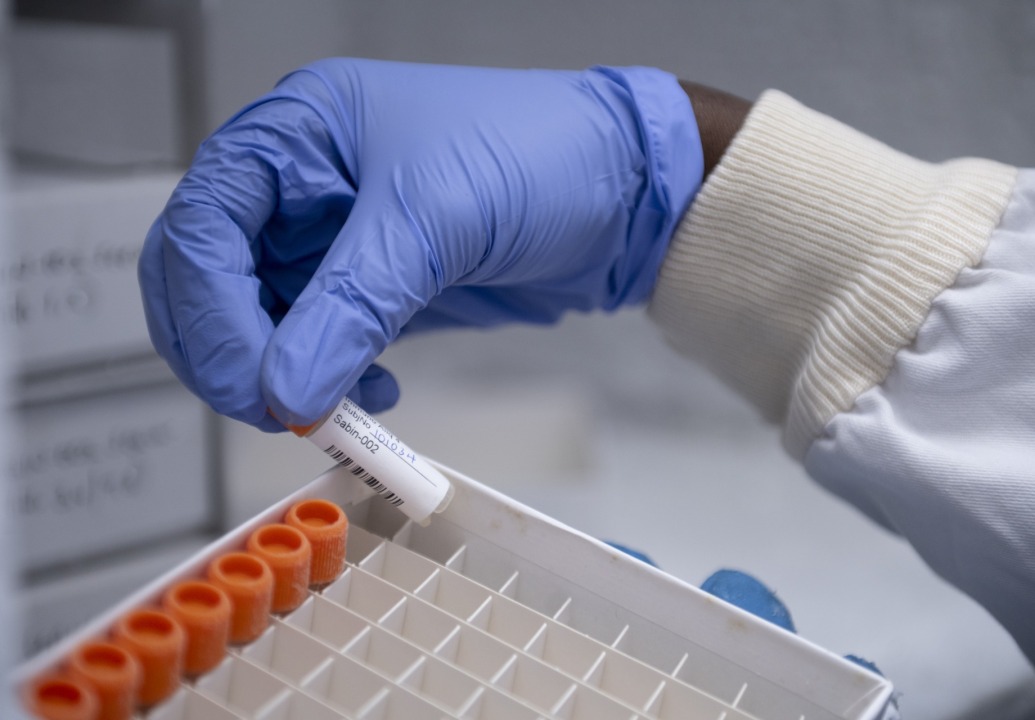Sudan Ebolavirus Vaccine Development Program
Sudan ebolavirus disease is a severe and often fatal illness caused by a filovirus, the same family as the Marburg virus. Since no licensed vaccine exists, Sabin’s R&D program is developing a chimpanzee-adenovirus type 3 (cAd3) vaccine to help protect against this deadly pathogen. Fatality rates for Sudan virus disease have varied from 41% to 100% in past outbreaks. A Phase 2 clinical trial for Sabin’s Sudan ebolavirus vaccine candidate is now underway. Sabin has supported outbreak response for Sudan outbreaks.

About Sudan ebolavirus
Lesser known than Ebola Zaire, Sudan ebolavirus are members of the same Filoviridae virus family and are commonly referred to as filoviruses. Both can cause severe hemorrhagic fever in humans and nonhuman primates. While there are two approved vaccines for Ebola Zaire, no licensed vaccines exist to protect against Sudan ebolavirus.
Sudan ebolaviruses are transmitted to humans by infected animals, particularly fruit bats. Once a human is infected, the virus can spread to others through close personal contact or contact with bodily fluids. Isolation of infected people is currently the centerpiece of filovirus control.
Ebola was identified in 1976 when two simultaneous outbreaks occurred in northern Zaire (now the Democratic Republic of Congo) in a village near the Ebola River and southern Sudan. The outbreaks involved what eventually proved to be two different species of Ebola virus; both were named after the nations in which they were discovered.
Relevant Resources

We make vaccines more accessible, enable innovation and expand immunization across the globe.






